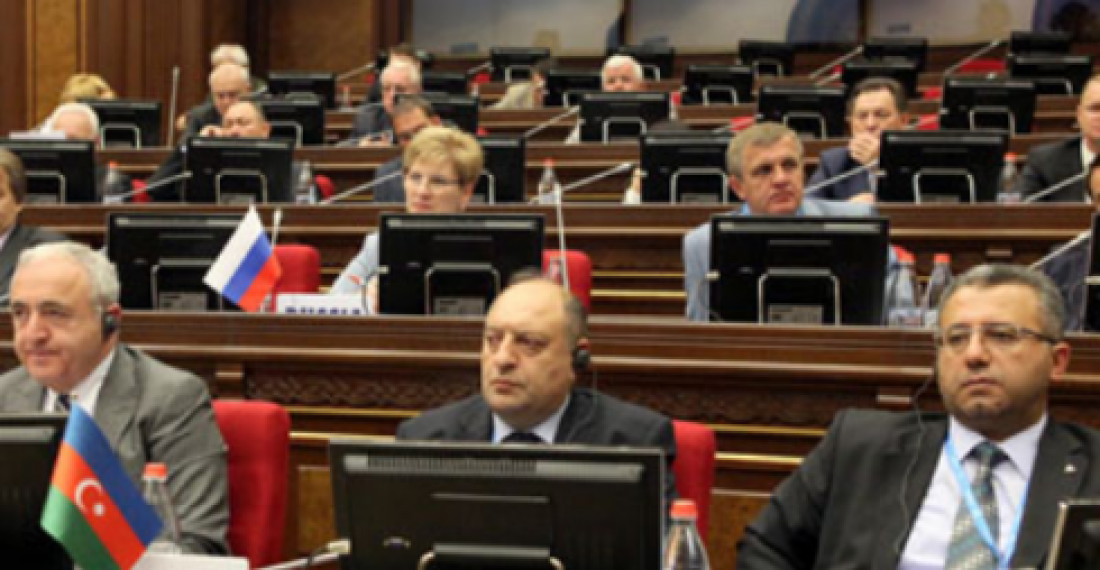The number of exchanges involving members of the parliaments of Armenia and Azerbaijan visiting each other's capitals has increased dramatically over the last few months. A number of parliamentary frameworks, such as the European Parliament's Euronest have recently hosted meetings in both Baku and Yerevan at which parliamentarians from both countries were present. This is seen as a positive factor which contributes to opening up a dialogue process between the political elites of the two countries.
The process is not however without its difficult moments.
The 39th Plenary Session of the Black Sea Parliamentary Assembly was held in Yerevan last week, somewhat overshadowed by the Eurovision Festival and the events around it taking place in Baku.
In his welcoming address, President Serzh Sargsyan expressed the hope that the organisation would work towards the opening of borders in the region. However the Azerbaijani delegation commented that the opening of borders and further cooperation with Yerevan would only be possible if Azerbaijani lands occupied by Armenia were returned and the Karabakh issue resolved with respect to Azerbaijan's territorial integrity. Azerbaijani MP Asef Hadjiev referred to Azerbaijan's non-permanent seat on the UN Security Council as evidence of international support for his country's policies.
There was controversy in the media over a report that the Azerbaijani Parliamentarians had visited the Armenian Genocide Memorial and Museum at Tsitsernakaberd, just outside Yerevan.
Azerbaijani media claimed that their Armenian counterparts incorrectly reported the Azeri MPs' presence at the site whilst some Armenian media outlets have responded by accusing the Azeri online press of attacking its own MPs.
The Azerbaijani parliament has officially denied its members' participation, saying that they were in Georgia at the time of the visit. As a close ally of Turkey, Azerbaijan shares its view that the deaths of Armenians at Ottoman hands in 1915 took place within the context of war.
The rest of the PABSEC event was largely uneventful. The plenary session was attended by some 70 parliamentary delegates from 10 countries. To mark the organisation's 20th anniversary, delegates unanimously adopted a statement reiterating its aim of developing "good neighborliness, friendship and partnership between the countries of the region, [and] mutually beneficial cooperation in political, economic and humanitarian spheres". Russian representative Yevgeny Kapishin was elected as the next secretary-general, and the Inter-parliamentary Assembly on Orthodoxy (I.A.O.) and the Parliamentary Union of the Organization of the Islamic Conference were granted observer status.
Armenia, which has held the rotating presidency of the Assembly for the last six months, passed on the chair to Azerbaijan - the next plenary session will be held in Baku in November.
source: commonspace.eu
photo: The Azerbaijani Parliamentary Delegation at the PABSEC event in Yerevan







